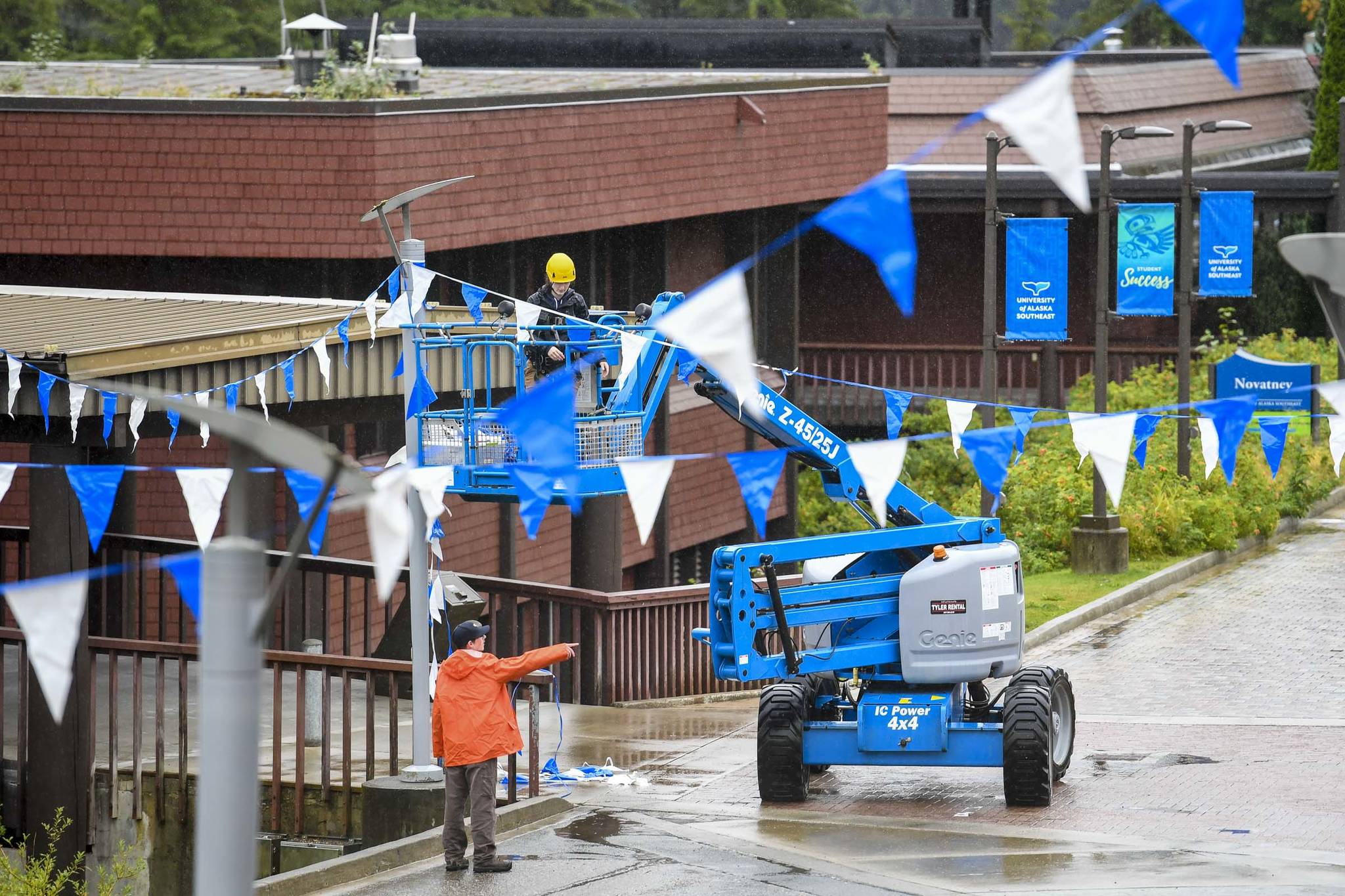The University of Alaska Board of Regents Subcommittee on Restructuring the University of Alaska held a special meeting Wednesday to share information about University of Alaska President Jim Johnsen’s plans for the university’s future.
There was no action taken at the meeting at the University of Alaska, Fairbanks as the subcommittee was created to be purely informational. The subcommittee was presented with Johnsen’s current financial plans for the university’s $70 million in cuts and feedback Johnsen and other university officials had received from the public.
“Now that financial exigency has been terminated,” Johnsen said, “the university must review its programs and examine where reductions can be made.”
The Regents previously declared financial exigency following Gov. Mike Dunleavy’s late June announcement of $136 million in cuts to the University of Alaska. Exigency is a financial tool that allows for certain actions to be taken that would not be legally allowed under normal circumstances, for example the firing of tenured faculty.
[Live: Regents talk future of the University of Alaska]
On Aug. 13, Dunleavy signed a “step down” compact with Board of Regents Chairman John Davies which outlined a series of reductions UA would make in exchange for cuts from the state taking place over three years, rather than all at once.
Johnsen has been tasked with making a plan for the university’s changes and will submit a plan to the board at a Sept. 12 meeting. He has not been authorized to make any changes. Any changes to the UA system must be approved by the Board of Regents.
So far the university has been able to save an estimated $8 million for the coming fiscal year through a combination of freezes on hiring, travel and procurement. Reductions to adjunct faculty as well as consolidation of administrative services will contribute to savings as well, a presentation made to the subcommittee said.
But while the consolidation of administrative services can save the university money, Johnsen said, it must be carefully done in order to not over-burden administrative staff and thus reduce their ability to provide services.
Additionally Johnsen said, there are instances where administrative roles intersect with academics, and those positions must be carefully examined as to not jeopardize the university’s academic accreditation.
The loss of academic accreditation looms large over the restructuring process. If the university fails to meet the standards set by the Northwest Commission on Colleges and Universities, the federally recognized accreditation body, it will lose its accreditation and no longer be able to offer meaningful degrees and certifications.
University officials received public input both from workshops held from Aug. 19-23 and from a “Stakeholder Mapping Survey” posted online.
Johnsen and other university officials said they appreciated public feedback and were cognizant of the sensitivity needed in making cuts and reforming the university.
While there was amicable discussion about public input and the need for careful consideration, there was also the sober reminder that the university is facing a financial crisis.
As Regent Dale Anderson put it, “we cannot afford the university of yesterday.”
Anderson pointed out that financial exigency had been removed but the directive to move the university to a single accreditation model had not.
• Contact reporter Peter Segall at 523-2228 or psegall@juneauempire.com.

